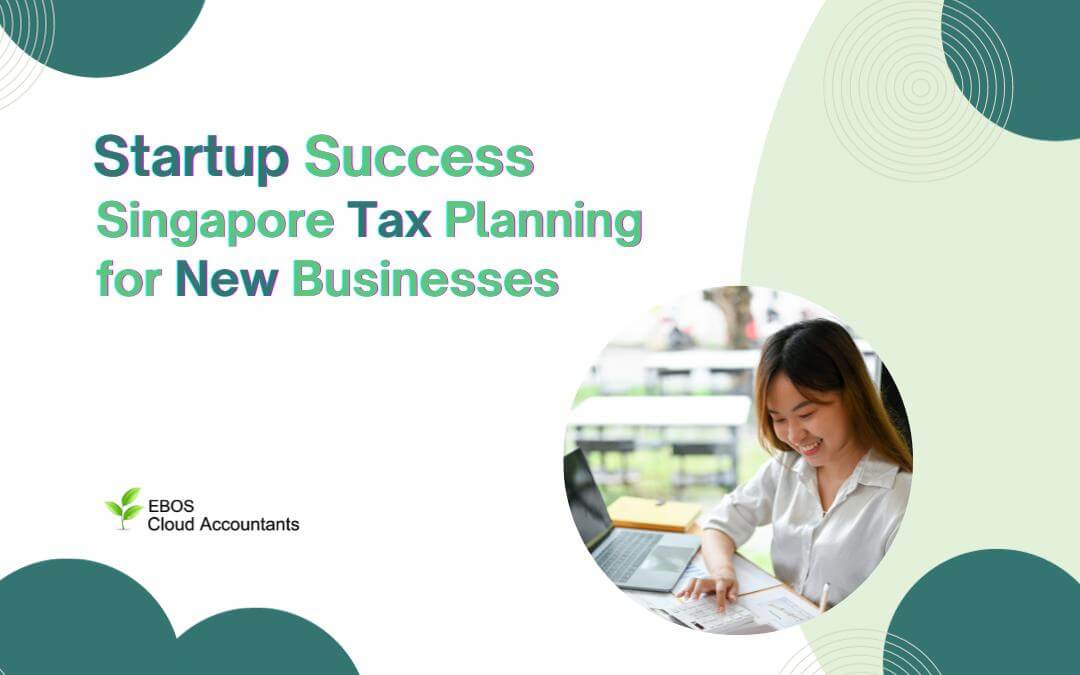Singapore is recognized as a global financial center for investors and business owners. Attracting numerous young talents from around the world and expanding into the Singapore market.
However, many firms, particularly new businesses in Singapore, faces penalties and loss due to poor tax preparation. This is why good tax planning is important to assist firms in saving money, increasing cash flow, and meeting financial goals.
In this article, we will discuss how to successfully organize your taxes, particularly for new businesses in Singapore.
Understanding Singapore’s Tax System
It is important that you grasp the tax system and your responsibilities. Within two weeks of beginning operations, every firm must register for taxation with the Inland Revenue Authority of Singapore (IRAS). This will provide you with your unique taxpayer identification number (TIN), which you will need to file returns.
Once registered, firms must file their annual taxes by November 30th of each year. Singapore’s tax rate changes according to your income level and other factors such as industry-specific benefits or exemptions. It’s crucial to remember that missing these dates might result in hefty penalties and interest charges.
Maintain Accurate Records Throughout the Year
Keeping correct records throughout the year is one of the most important things small business owners should emphasize when completing their taxes.
Accurately and consistently recording transactions ensures that you have all of the relevant information when it comes time to complete your tax returns.
Hence, keeping correct records can help to avoid costly mistakes while completing tax returns.
Make A Claim for All Eligible Deductions and Credits
When it comes to tax returns, one of the most crucial advices for small business owners is to claim all possible deductions and credits. By doing so, you may substantially decrease your taxable income, resulting in cheaper taxes.
Furthermore, small business owners must keep records of all their expenses throughout the year in order to precisely estimate what deductions they are eligible for during tax season. Claiming such deductions will help you reduce your overall tax liability and keep your firm profitable over time.
Avoid Penalties by Planning for Tax Payment Deadlines
To avoid fines, Singaporean small business owners must plan ahead of time for their tax payment deadlines. This is putting money aside throughout the year to offset any prospective tax liabilities. It is critical to remember that taxes are a continuing commitment rather than a one-time payment.
Creating a budget explicitly dedicated for taxes is one effective technique of handling tax obligations. Small business owners can ensure they have enough finances to pay their taxes by setting aside a percentage of their income each month or quarter.
Consider Hiring a Tax Professional
When it comes to filing your taxes as a Singaporean small business owner, you might want to think about hiring a professional tax counselor. These professionals have an extensive understanding of the complex tax system and can assist you in maximizing all possible reductions and credits.
Though employing a tax professional will incur costs, the benefits they provide may surpass these costs in the long run.
If you want to hire a tax professional, consider EBOS Cloud Accountants, who have years of experience in accounting and taxation and can undoubtedly help you with accounting concerns.
This will save you time and energy since our accountants will perform all of the work for you, from gathering all of the relevant documents to correctly completing and filing all of the forms on time.
Contact us today at ebos-sg.com if you would like to learn more about our services.







